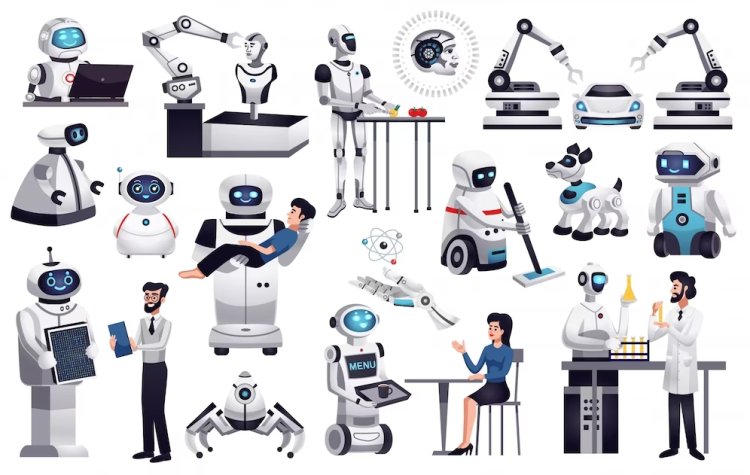The Human Vs. Humanoid Robots Saga
The question of whether humans will ever "beat" robots is indeed a complex and fascinating one.

It touches upon various aspects of technology, artificial intelligence, human capabilities, and the potential impact on society. Let's explore some key points related to this question:
-
Technological Advancements: Technology and artificial intelligence are continually evolving, and robots are becoming more advanced, capable, and sophisticated. Robots have already surpassed humans in some specific tasks, such as precision manufacturing, data analysis, and repetitive tasks. As technology progresses, it's likely that robots will continue to outperform humans in certain domains.
-
Human Ingenuity and Creativity: While robots can excel at certain tasks, human beings possess unique qualities such as creativity, emotional intelligence, intuition, and empathy. These human attributes enable us to tackle complex problems, think outside the box, and create art, music, literature, and innovations that robots currently struggle to replicate.
-
Narrow vs. General AI: Currently, most robots and artificial intelligence systems are "narrow AI," meaning they are designed for specific tasks and lack general intelligence. Humans, on the other hand, have "general AI" capabilities, which allow us to adapt to various situations and learn from experiences. The development of general AI remains a challenging and ongoing pursuit.
-
Synergy Between Humans and Robots: The future may not necessarily be a competition between humans and robots, but rather a collaboration and synergy between the two. Robots can complement human skills and enhance productivity in various fields, while humans can guide and oversee the ethical and moral implications of AI technology.
-
Ethical Considerations: As AI and robotics advance, ethical concerns arise, such as job displacement, privacy, biases, and potential misuse of AI technology. It is crucial to address these issues to ensure that robots and AI serve humanity's best interests rather than creating harm or inequality.
-
Uncertainty of the Future: Predicting the future of technology is inherently uncertain. While we can make educated guesses based on current trends, breakthroughs and paradigm shifts can alter the trajectory dramatically. Technological advancement is influenced by many factors, including societal choices, funding, regulations, and ethical considerations.
In conclusion, whether humans will ever "beat" robots is a multifaceted question that does not have a simple yes or no answer. The relationship between humans and robots will likely be a combination of competition, collaboration, and adaptation. Emphasizing ethical considerations, defining the roles of AI and robotics in society, and ensuring human-centric development will be essential in shaping a positive future with technology.
Read: artificial-intelligence-a-double-edged-sword-for-civilizations-future
What's Your Reaction?





















